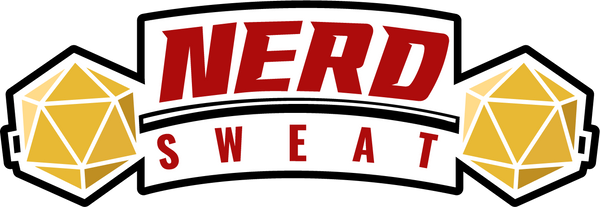
How D&D Fosters Teamwork and Strengthens Bonds with Co-Workers
In today’s workplace, finding innovative ways to build teamwork and camaraderie is key to creating a healthy, productive environment. Traditional team-building activities—like trust falls or brainstorming workshops—often feel forced or uninspiring. Enter Dungeons & Dragons (D&D), an immersive tabletop role-playing game that can foster creativity, collaboration, and problem-solving skills, all while strengthening the bonds between co-workers.
Here’s how playing D&D can transform your team into a more cohesive unit:
1. Collaborative Problem-Solving
In D&D, players take on the roles of characters within a shared story and work together to overcome challenges set by the Dungeon Master (DM). Whether it’s outsmarting a tricky puzzle or battling a horde of goblins, the game requires players to pool their strengths, think strategically, and communicate effectively.
Imagine this scenario: Your team is stuck in a dungeon, and the only way out is through a door protected by a magical riddle. The group needs to brainstorm solutions, drawing on each character’s unique abilities to solve the puzzle. A situation like this translates directly to work—encouraging collaboration and highlighting each team member's strengths.
Example: A marketing team playing D&D together might use the game to solve fictional problems, allowing them to practice quick decision-making and brainstorming, skills that can be easily transferred to real-life work scenarios.
2. Building Trust and Communication
D&D relies heavily on open communication between players. You need to talk about strategies, share ideas, and help one another when faced with challenges. In the workplace, trust and communication are the foundation of any successful team.
Through the game, you’ll quickly notice how quieter team members may find themselves taking on leadership roles or how strong communicators can help organize group actions. By making these dynamics visible in a fun, low-pressure environment, D&D helps co-workers understand each other's working styles and become more effective communicators.
Example: A development team might use D&D sessions to strengthen cross-functional communication, where a project manager and developer must work together to plan a critical game strategy, much like coordinating a project launch.
3. Encouraging Creativity and Flexibility
D&D is a game of limitless possibilities, allowing players to flex their creative muscles and think outside the box. Whether it's crafting a clever solution to a problem or role-playing a complex character, D&D invites participants to explore their imaginations. This creative mindset is invaluable in a professional setting, especially in industries like marketing, tech, or design, where innovation is key.
Furthermore, the game's unpredictable nature requires players to adapt and think on their feet—a skill that’s crucial in fast-paced work environments. D&D teaches flexibility and resilience, as players must pivot quickly when their plans don't work out, just like in real-world projects.
Example: In a design firm, the team could play D&D as a fun way to stimulate creative brainstorming sessions, helping everyone come up with fresh, innovative ideas in a different, more playful context.
Resources to Get Started:
If you're interested in introducing D&D to your workplace, here are some resources to help you get started:
- D&D Beyond: A comprehensive website that includes digital tools, rules, character sheets, and beginner guides. Perfect for new players and Dungeon Masters. Visit D&D Beyond.
- The Dungeon Master’s Guide: A core rulebook for those interested in learning how to run a D&D campaign for the team. It includes tips for world-building, encounter design, and storytelling. Available on Amazon or at local game stores.
- Critical Role YouTube Channel: Watch live-streamed D&D sessions featuring talented voice actors and storytellers. This can give your team a sense of the game’s flow and the possibilities of collaborative storytelling. Watch Critical Role.
- Roll20: If your team works remotely, Roll20 is a virtual tabletop platform where players can join D&D sessions online. It’s a great tool for teams looking to connect and play despite physical distance. Try Roll20.
Conclusion:
Dungeons & Dragons isn’t just a game for fantasy enthusiasts; it’s a powerful tool for fostering teamwork, trust, and creativity among co-workers. By playing D&D, your team can build stronger relationships, improve communication, and develop problem-solving skills—all while having fun in an imaginative world. Whether in the office or remotely, a D&D campaign might just be the team-building solution you’ve been looking for.
So, gather your co-workers, roll some dice, and start your next great adventure—together!
References
- Robbins, Stephen. Essentials of Organizational Behavior. 15th ed., Pearson, 2019.
- Mercer, Matthew. Critical Role: Collaborative Storytelling, YouTube, Geek & Sundry.
- Jeremy Crawford, Gygax, Gary, and Dave Arneson. Dungeons & Dragons: Player's Handbook 2024. Wizards of the Coast, 2024.
